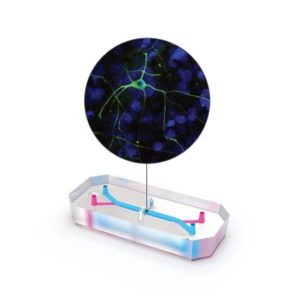
Emulate has unveiled a brain-chip aimed at enhancing neuroinflammatory disease research and drug discovery. According to a press release by emulate, the comprehensive neurovascular unit model emulates features of the human brain and blood-brain barrier.
Emulate claims the brain-chip is designed for neuroscience researchers investigating neuroinflammatory disease and for drug developers seeking to improve drug discovery for neurodegenerative diseases such as Alzheimer’s and Parkinson’s. The model incorporates cells from the human brain, including the blood-brain barrier, in a dynamic microenvironment which enables cell-cell interaction.
Emulate Organ-Chips, including the Brain-Chip, are designed to enable researchers to investigate the safety and efficacy of therapeutic treatments in development, in order to reduce the high drug development failure rates that result from a poor understanding of drug mechanism of action, toxicity, pharmacokinetic profile, or overall applicability and translation of animal and in vitro models used in preclinical research.
“The global burden of neurodegenerative diseases is high, yet despite billions of dollars invested in developing new treatments, biopharmaceutical companies are struggling to develop successful therapies,” said Lorna Ewart, EVP, Science Liaison of Emulate, Cambridge, UK. “Better modelling of the human brain can help researchers and pharmaceutical companies develop new understandings of the mechanisms of neuroinflammatory disease, the inner workings of the blood-brain barrier, drug toxicity, and drug effectiveness, which we hope can streamline the drug development process and bring safer, more effective treatments for neurodegenerative disease to market faster.”
According to their press release, the Emulate brain-chip is a comprehensive model of a neurovascular unit, including the blood-brain barrier, containing five human primary and induced pluripotent stem cell-derived (iPSC) cell types (neurons, microglia, astrocytes, pericytes, and brain microvascular endothelial cells) in a dynamic, tunable microenvironment, resulting in in vivo-like gene expression. The incorporation of microglia allows researchers to reproduce key features of neuroinflammation— including microglial activation, astrogliosis, and pro-inflammatory cytokines—presenting a more human-relevant model for evaluating new therapeutics than animal testing or conventional cell culture.
The development of the Emulate brain-chip was partially supported by grant funding received from the US National Institutes of Health and the Michael J. Fox Foundation in 2018.






